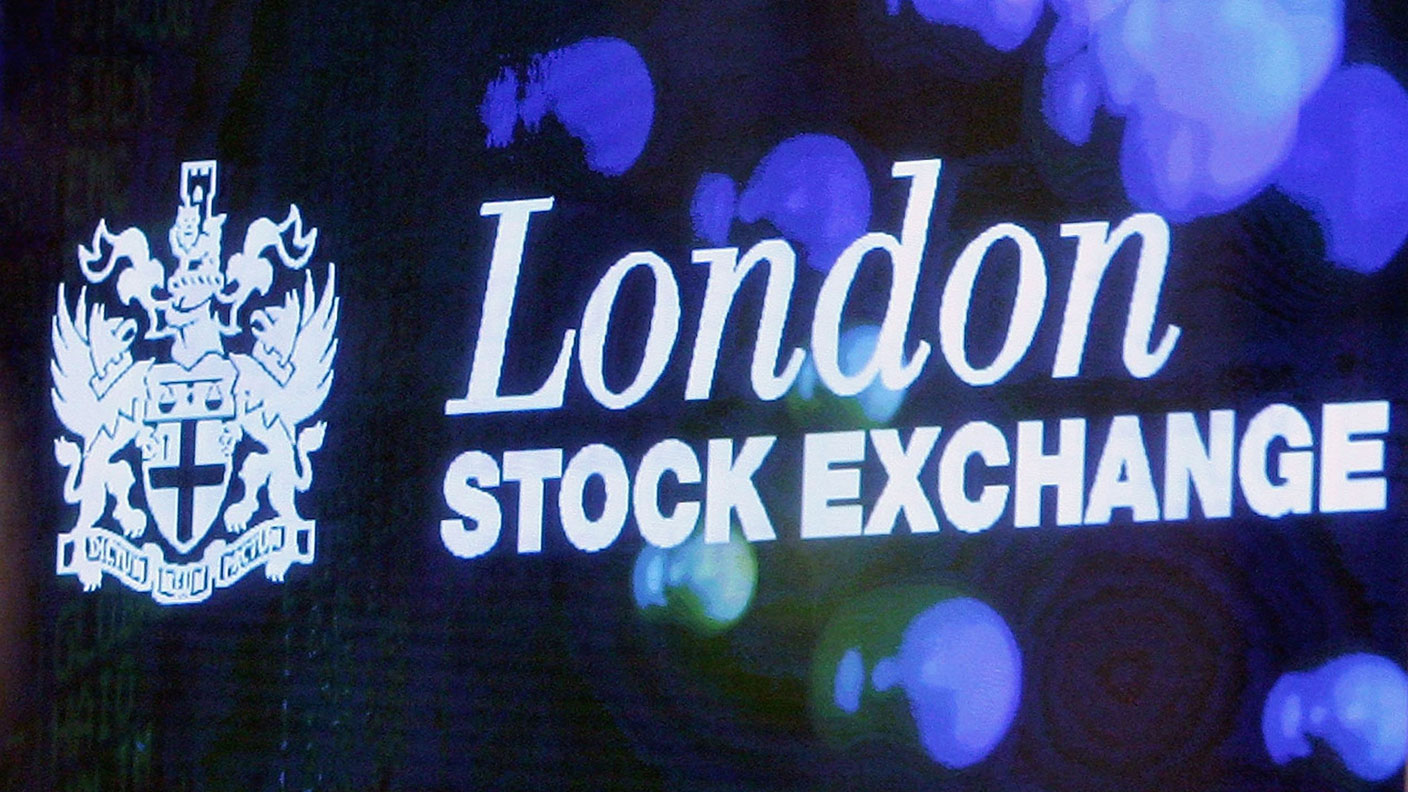Whisper it – but perhaps the UK stockmarket deserves to be cheap
The UK stockmarket is historically undervalued compared to others. But there are good reasons for that, says Max King – and investors may well be right to shun it.

At long last, the UK stockmarket is outperforming.
In the year to date (as of 25 May), it had returned 2.3% in sterling terms (though -5.1% in US dollars), more than 10% ahead of Japan, emerging markets and around 15% ahead of the US and Europe.
The MSCI All Countries World Index lost 17.8% in dollars.
Try 6 free issues of MoneyWeek today
Get unparalleled financial insight, analysis and expert opinion you can profit from.

Sign up to Money Morning
Don't miss the latest investment and personal finances news, market analysis, plus money-saving tips with our free twice-daily newsletter
Don't miss the latest investment and personal finances news, market analysis, plus money-saving tips with our free twice-daily newsletter
Yet, according to Ed Yardeni, the UK stockmarket is valued at barely ten times earnings for the next year, compared with 17 for the US, 11 for emerging markets, and around 12 for Japan and Europe.
So, some argue (not least most of the rest of the team at MoneyWeek), the UK is not only attractively valued but the wind is behind it.
Should you stick with the UK?
The UK market has had a rough decade
The UK has outperformed all comers this year. But over the previous ten years, it was a different story.
MSCI’s UK index returned 65% (and barely 10% in terms of capital only – most of that was dividends) while the US market more than quadrupled. Japan and Europe each returned around 130% and only emerging markets performed as dismally as the UK.
Has the nightmare for loyal British investors come to an end? They have been globalising their portfolios for decades but most are still significantly “overweight” the UK (a phenomenon known as “home bias”).
The FTSE All Share index currently yields 3.3%, comfortably above other markets while the companies are more familiar than those listed overseas and prices are denominated in sterling, which means less currency “risk.”
That said, British investors have learned to be cynical about the long-term direction of the pound. The globalisation of businesses has also made overseas companies, particularly American, much more familiar.
However, a significant degree of home bias remains.
The classic explanation of the UK’s poor historic performance is that it is a “value” rather than a “growth” market. This however, fails to explain why relatively few growth companies have listed in the UK in the first place, or why so many established companies have failed to develop growth strategies.
To some extent, it is a value market because it has performed poorly, though a relatively high exposure to the resources sectors has certainly helped. But the sectoral composition of the UK market and its focus on value rather than growth companies does not explain all of the UK’s poor performance and valuation.
Nick Train, manager of Finsbury Growth & Income Trust, asks “are UK companies undervalued?” pointing to four growth companies in the UK that trade on far lower valuations than overseas comparators.
In fashion, Burberry is valued at 13 times earnings against 29 for Moncler; investment platform Hargreaves Lansdown is valued at 15 times against 22 for US peer Charles Schwab; fund manager Schroders is valued at 0.9% of assets under management against 1.9% for T. Rowe Price in the US; and business software group Sage at four times the ratio of enterprise value to revenues compared with ten for Intuit and 14.5 for Xerox.
Does the UK deserve to trade at a political discount?
There is an alternative explanation which is uncomfortable for Train and all UK investors; that UK shares are undervalued for a very good reason. Perhaps international investors regard the UK as an unattractive market because of a hostile media, public and political environment which means that lower valuations are required to compensate for the additional risk.
The latest example of this is the “windfall” tax on hydrocarbon production in the North Sea, which falls almost exclusively on UK-based companies since overseas companies sold out long ago.
This is at a time when the need for increased investment and production, now actively discouraged, has rarely been more clear. No wonder that ExxonMobil and Chevron appear “more expensive” than BP or Shell.
That the tax is not to be levied on generators of renewable energy is no comfort; this is said to be because such a tax would be too “complex” not because it would discourage investment. The required return on and hence cost of capital will rise as a result of the possibility being raised. Renewable funds will focus more on overseas investments.
This tax comes on top of the 4% increase in the rate of corporation tax to 25%. International investors know that the government party is supposed to be business friendly and that an opposition government will be much less so, especially now it has been set a bad example.
Those with long memories will remember a series of comparable raids; windfall taxes on banks and the ongoing higher corporation tax they pay, the levy on privatisation stocks in the late 1990s, and the stringent regulation of banks and insurance companies – supposedly EU-instigated, but still there – which has crippled their ability to bounce back from the financial crisis. In the last ten years, the share price of JP Morgan has quadrupled while Barclays is up 10% and Lloyds down 10%.
Who can rule out a “windfall” tax on the beneficiaries of higher inflation, such as food retailers? Or a tax on home delivery to “save the High Street”? No investor will believe that we have seen the last of “one-off” tax raids, anti-business regulation or government-imposed costs. The consequence is a reluctance to invest without correspondingly higher returns and hence slower economic growth. No wonder overseas investors are staying away.
The US is reassuringly expensive
The French government’s crippling of EDF to subsidise consumer energy bills shows that the UK has no monopoly on short-termism. But, in general, the EU and the euro act as a restraint on reckless governments. Change in Japan happens at a snail’s pace, which makes the business environment predictable. Canada does not want to drive business across the border and Australia is all too aware of the competition from Asia.
In the US, the Democratic party controls (just) both houses of Congress with a Democrat president, but the radical initiatives on tax, spending and government involvement in the economy have fizzled out.
The Democrats are highly likely to lose control of Congress in six months’ time and are very unlikely to control all three arms of government for another ten years.
In any case, competition between the states, the free flow of people and goods and the limits of federal involvement ensure overall stability. People may move from New York to Florida and from California to Texas, and they can choose to live in Washington state (10% sales tax, no state income tax) and shop in Oregon across the Columbia River (the other way around) but the US economy overall is unaffected and, in time, the states should come into alignment.
This makes the US market reassuringly expensive while the UK is cheap but riskier. Investors, like consumers, soon learn that it usually makes sense to pay up for quality, but the US is a quality market and the UK isn’t.
At the risk of contradicting the current views of my MoneyWeek colleagues, I’d argue that the UK’s current outperformance gives investors the opportunity to switch into global or overseas funds.
SEE ALSO:
Three fast-growing, undervalued UK mid-cap stocks to buy now
The ten highest dividend yields in the FTSE 100
Get the latest financial news, insights and expert analysis from our award-winning MoneyWeek team, to help you understand what really matters when it comes to your finances.

Max has an Economics degree from the University of Cambridge and is a chartered accountant. He worked at Investec Asset Management for 12 years, managing multi-asset funds investing in internally and externally managed funds, including investment trusts. This included a fund of investment trusts which grew to £120m+. Max has managed ten investment trusts (winning many awards) and sat on the boards of three trusts – two directorships are still active.
After 39 years in financial services, including 30 as a professional fund manager, Max took semi-retirement in 2017. Max has been a MoneyWeek columnist since 2016 writing about investment funds and more generally on markets online, plus occasional opinion pieces. He also writes for the Investment Trust Handbook each year and has contributed to The Daily Telegraph and other publications. See here for details of current investments held by Max.
-
 Has the market misjudged Relx?
Has the market misjudged Relx?Relx shares fell on fears that AI was about to eat its lunch, but the firm remains well placed to thrive
-
 Dario Amodei: The AI boss in a showdown with Trump
Dario Amodei: The AI boss in a showdown with TrumpAnthropic’s CEO Dario Amodei was on an extraordinary upward trajectory when he found himself on the wrong side of the American president. He is about to be severely tested.
-
 Profit from MSCI – the backbone of finance
Profit from MSCI – the backbone of financeAs an index provider, MSCI is a key part of the global financial system. Its shares look cheap
-
 Ashoka: A new, but reliable, trust you can count on
Ashoka: A new, but reliable, trust you can count onOur investment columnist, Max King, says tough times breed investment trusts like Ashoka, that you can trust.
-
 Halifax: House price slump continues as prices slide for the sixth consecutive month
Halifax: House price slump continues as prices slide for the sixth consecutive monthUK house prices fell again in September as buyers returned, but the slowdown was not as fast as anticipated, latest Halifax data shows. Where are house prices falling the most?
-
 Rents hit a record high - but is the opportunity for buy-to-let investors still strong?
Rents hit a record high - but is the opportunity for buy-to-let investors still strong?UK rent prices have hit a record high with the average hitting over £1,200 a month says Rightmove. Are there still opportunities in buy-to-let?
-
 Pension savers turn to gold investments
Pension savers turn to gold investmentsInvestors are racing to buy gold to protect their pensions from a stock market correction and high inflation, experts say
-
 Where to find the best returns from student accommodation
Where to find the best returns from student accommodationStudent accommodation can be a lucrative investment if you know where to look.
-
 The world’s best bargain stocks
The world’s best bargain stocksSearching for bargain stocks with Alec Cutler of the Orbis Global Balanced Fund, who tells Andrew Van Sickle which sectors are being overlooked.
-
 4 funds for global growth
4 funds for global growthFactor funds are a cheap way to build a portfolio with less bias towards technology or America, says David C Stevenson.
